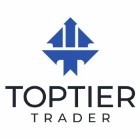Prop Firm Reviews
| Company | Account Sizes | Evaluation Cost (Discounted) | User Reviews | Promo Codes | Min. Profit Split | Payout Frequency | Trading platforms | Asset classes | EA's Allowed | Evaluation Types (Steps) | 77c09798-0805-41d8-a6fe-c160c22702d1 | ||
|---|---|---|---|---|---|---|---|---|---|---|---|---|---|
 Bright Funded
Bright Funded
|
No Rating
|
Monthly |
|
Forex
Indices
Oil/Energies
Cryptocurrencies
Metals
Soft Commodities (coffee, sugar...)
|
False | 90e0b470-5488-4cbd-8041-0d0b4e2bb75d | https://brightfunded.com/ | ||||||
 E8 Markets
E8 Markets
|
$5,000.00 - $500,000.00 | $48.00 - $2,548.00 |
4.5
Excellent
|
40% | BiWeekly |
cTrader
Match Trader
Platform 5
|
Futures
Forex
Indices
Oil/Energies
Cryptocurrencies
Metals
|
True | 1, 2, 3 | 90d3ccd4-5114-48e3-b959-0859fdc2ea33 | https://e8markets.com/a/C12C09E2 | ||
 Finotive Funding
Finotive Funding
|
$2,500.00 - $200,000.00 | $29.00 - $1,799.00 |
No Rating
|
60% | Weekly |
|
Forex
Shares
Indices
Oil/Energies
Cryptocurrencies
Metals
|
True | 1, 2, Instant | b99a51ad-b0b4-4e8e-a266-2336daf81380 | https://finotivefunding.com/ | ||
|
|
$6,000.00 - $100,000.00 | $59.00 - $689.00 |
No Rating
|
70% | BiWeekly |
cTrader
MT5
TradeLocker
|
Forex
Indices
Oil/Energies
Metals
|
True | 1, 2, Instant | 31a82534-855c-4df6-9263-4640e4d2a03e | https://www.fortraders.com/ | ||
 FTMO
FTMO
|
€10,000.00 - €200,000.00 | €155.00 - €1,080.00 |
4.6
Excellent
|
80% | BiWeekly |
cTrader
MT4
MT5
Proprietary
|
Forex
Shares
Indices
Oil/Energies
Cryptocurrencies
Metals
|
True | 2 | 790f4db0-eb96-4cb1-a088-b5b2e363ade4 | https://ftmo.com/?affiliates=BXAMXYLRapTpMoSJXcrY | ||
 Funded Trading Plus
Funded Trading Plus
|
$5,000.00 - $200,000.00 | $119.00 - $4,500.00 |
4.5
Excellent
|
1 Promo Codes | 80% | Weekly |
cTrader
Match Trader
DXtrade
Platform 4
Platform 5
|
Forex
Indices
Oil/Energies
Cryptocurrencies
Metals
|
True | 1, 2, Instant | 32df812c-f8a2-4e9a-95d9-5f6a67fce255 | https://www.fundedtradingplus.com/ | |
 FundedNext
FundedNext
|
$5,000.00 - $200,000.00 | $32.00 - $1,099.00 |
4.6
Excellent
|
80% | BiWeekly |
cTrader
MT4
MT5
|
Forex
Indices
Oil/Energies
Cryptocurrencies
Metals
|
False | 1, 2, Instant | 9052bad5-8360-47ab-9ac7-31965661622c | https://fundednext.com/ | ||
 Funding Frontier
Funding Frontier
|
No Rating
|
Monthly |
|
|
False | 6486e18c-951c-47de-8593-aa1adb0b0a6a | https://fundingfrontier.com/ | ||||||
 Goat Funded Trader
Goat Funded Trader
|
$2,500.00 - $200,000.00 | $30.00 - $1,898.00 |
3.0
Average
|
40% | BiWeekly |
Match Trader
TradeLocker
Platform 5
|
Forex
Indices
Oil/Energies
Cryptocurrencies
Metals
|
True | 1, 2, 3, Instant | 5b9e58a6-048a-4207-9d5e-ae32bc31ea85 | https://www.goatfundedtrader.com/ | ||
 Lark Funding
Lark Funding
|
No Rating
|
Monthly |
|
|
False | 8564ac91-d2a3-4d46-8efc-71ad74449352 | https://larkfunding.com/ | ||||||
 Ment Funding
Ment Funding
|
4.0
Good
|
Monthly |
|
|
False | 82704d31-615f-42f6-814f-edddc8f52fbd | https://mentfunding.com/ | ||||||
 PipFarm
PipFarm
|
No Rating
|
Monthly |
|
|
False | 577aa1fc-242b-4708-bf2b-94c1adbe998c | https://pipfarm.com/ | ||||||
 Seacrest Funded
Seacrest Funded
|
$5,000.00 - $100,000.00 | $38.00 - $500.00 |
4.5
Excellent
|
80% | BiWeekly |
cTrader
MT5
Match Trader
|
Forex
Indices
Oil/Energies
Cryptocurrencies
Metals
|
False | 1, 2, 3 | 46c56e18-2ff5-42a0-babb-a3710853fc80 | https://funded.seacrestmarkets.io/?sl=10606 | ||
 Top One Trader
Top One Trader
|
No Rating
|
Monthly |
|
|
False | 5921b442-d623-4f97-8c6b-76bc3663ea27 | https://toponetrader.com/ | ||||||
 TopTier Trader
TopTier Trader
|
$5,000.00 - $300,000.00 | $59.00 - $1,345.00 |
4.5
Excellent
|
1 Promo Codes | 80% | BiWeekly |
TradeLocker
|
Forex
Indices
Oil/Energies
Cryptocurrencies
Metals
|
True | 1, 2 | 0fd97752-c52f-41fa-b176-3433feafacff | https://www.toptiertrader.com/en?referral=48dab65d |
| Company | Account Sizes | Evaluation Cost (Discounted) | User Reviews | Promo Codes | Min. Profit Split | Payout Frequency | Trading platforms | Asset classes | EA's Allowed | Evaluation Types (Steps) | 77c09798-0805-41d8-a6fe-c160c22702d1 | ||
|---|---|---|---|---|---|---|---|---|---|---|---|---|---|
 Bright Funded
Bright Funded
|
No Rating
|
Monthly |
|
Forex
Indices
Oil/Energies
Cryptocurrencies
Metals
Soft Commodities (coffee, sugar...)
|
False | 90e0b470-5488-4cbd-8041-0d0b4e2bb75d | https://brightfunded.com/ | ||||||
 E8 Markets
E8 Markets
|
$5,000.00 - $500,000.00 | $48.00 - $2,548.00 |
4.5
Excellent
|
40% | BiWeekly |
cTrader
Match Trader
Platform 5
|
Futures
Forex
Indices
Oil/Energies
Cryptocurrencies
Metals
|
True | 1, 2, 3 | 90d3ccd4-5114-48e3-b959-0859fdc2ea33 | https://e8markets.com/a/C12C09E2 | ||
 Finotive Funding
Finotive Funding
|
$2,500.00 - $200,000.00 | $29.00 - $1,799.00 |
No Rating
|
60% | Weekly |
|
Forex
Shares
Indices
Oil/Energies
Cryptocurrencies
Metals
|
True | 1, 2, Instant | b99a51ad-b0b4-4e8e-a266-2336daf81380 | https://finotivefunding.com/ | ||
|
|
$6,000.00 - $100,000.00 | $59.00 - $689.00 |
No Rating
|
70% | BiWeekly |
cTrader
MT5
TradeLocker
|
Forex
Indices
Oil/Energies
Metals
|
True | 1, 2, Instant | 31a82534-855c-4df6-9263-4640e4d2a03e | https://www.fortraders.com/ | ||
 FTMO
FTMO
|
€10,000.00 - €200,000.00 | €155.00 - €1,080.00 |
4.6
Excellent
|
80% | BiWeekly |
cTrader
MT4
MT5
Proprietary
|
Forex
Shares
Indices
Oil/Energies
Cryptocurrencies
Metals
|
True | 2 | 790f4db0-eb96-4cb1-a088-b5b2e363ade4 | https://ftmo.com/?affiliates=BXAMXYLRapTpMoSJXcrY | ||
 Funded Trading Plus
Funded Trading Plus
|
$5,000.00 - $200,000.00 | $119.00 - $4,500.00 |
4.5
Excellent
|
1 Promo Codes | 80% | Weekly |
cTrader
Match Trader
DXtrade
Platform 4
Platform 5
|
Forex
Indices
Oil/Energies
Cryptocurrencies
Metals
|
True | 1, 2, Instant | 32df812c-f8a2-4e9a-95d9-5f6a67fce255 | https://www.fundedtradingplus.com/ | |
 FundedNext
FundedNext
|
$5,000.00 - $200,000.00 | $32.00 - $1,099.00 |
4.6
Excellent
|
80% | BiWeekly |
cTrader
MT4
MT5
|
Forex
Indices
Oil/Energies
Cryptocurrencies
Metals
|
False | 1, 2, Instant | 9052bad5-8360-47ab-9ac7-31965661622c | https://fundednext.com/ | ||
 Funding Frontier
Funding Frontier
|
No Rating
|
Monthly |
|
|
False | 6486e18c-951c-47de-8593-aa1adb0b0a6a | https://fundingfrontier.com/ | ||||||
 Goat Funded Trader
Goat Funded Trader
|
$2,500.00 - $200,000.00 | $30.00 - $1,898.00 |
3.0
Average
|
40% | BiWeekly |
Match Trader
TradeLocker
Platform 5
|
Forex
Indices
Oil/Energies
Cryptocurrencies
Metals
|
True | 1, 2, 3, Instant | 5b9e58a6-048a-4207-9d5e-ae32bc31ea85 | https://www.goatfundedtrader.com/ | ||
 Lark Funding
Lark Funding
|
No Rating
|
Monthly |
|
|
False | 8564ac91-d2a3-4d46-8efc-71ad74449352 | https://larkfunding.com/ | ||||||
 Ment Funding
Ment Funding
|
4.0
Good
|
Monthly |
|
|
False | 82704d31-615f-42f6-814f-edddc8f52fbd | https://mentfunding.com/ | ||||||
 PipFarm
PipFarm
|
No Rating
|
Monthly |
|
|
False | 577aa1fc-242b-4708-bf2b-94c1adbe998c | https://pipfarm.com/ | ||||||
 Seacrest Funded
Seacrest Funded
|
$5,000.00 - $100,000.00 | $38.00 - $500.00 |
4.5
Excellent
|
80% | BiWeekly |
cTrader
MT5
Match Trader
|
Forex
Indices
Oil/Energies
Cryptocurrencies
Metals
|
False | 1, 2, 3 | 46c56e18-2ff5-42a0-babb-a3710853fc80 | https://funded.seacrestmarkets.io/?sl=10606 | ||
 Top One Trader
Top One Trader
|
No Rating
|
Monthly |
|
|
False | 5921b442-d623-4f97-8c6b-76bc3663ea27 | https://toponetrader.com/ | ||||||
 TopTier Trader
TopTier Trader
|
$5,000.00 - $300,000.00 | $59.00 - $1,345.00 |
4.5
Excellent
|
1 Promo Codes | 80% | BiWeekly |
TradeLocker
|
Forex
Indices
Oil/Energies
Cryptocurrencies
Metals
|
True | 1, 2 | 0fd97752-c52f-41fa-b176-3433feafacff | https://www.toptiertrader.com/en?referral=48dab65d |
Table of Contents
Proprietary trading firms, or "prop firms," have gained popularity among traders looking to leverage firm capital to trade in various markets. Unlike traditional trading, where traders use their own money, prop firms allow traders to trade using the firm’s capital in exchange for a percentage of the profits.
This arrangement can be a great way for skilled traders to scale their strategies without risking large sums of personal capital. Here’s a look at how these firms operate, as well as the pros and cons of working with them.
How Prop Trading Firms Operate
Proprietary trading firms, or prop firms, are companies that allow skilled traders to trade using the firm's capital rather than their own. These firms are interested in generating profits through trading activities in various financial markets such as Forex, stocks, futures, commodities, and cryptocurrencies.
The firms typically profit by taking a share of the trader's earnings. This creates a mutually beneficial arrangement where traders can trade on a larger scale, and the firm benefits from the profits they generate.
The Evaluation Process
Most prop firms require traders to undergo a rigorous evaluation process before granting them access to firm capital. The evaluation typically comes in two stages:
-
Initial Evaluation: The firm will test the trader’s ability to meet profit targets while maintaining strict risk management rules. Traders must demonstrate consistency, discipline, and skill during this phase. Firms set profit targets and maximum drawdown limits to ensure the trader can manage risk effectively.
-
Verification or Second Phase: If the trader passes the initial evaluation, they move on to a second verification stage, where they need to repeat their performance. This phase usually has similar, or sometimes slightly more lenient, requirements than the first.
Once both phases are passed, traders are officially funded with the firm’s capital.
How Funded Accounts Work
After successfully completing the evaluation, traders are given access to a live funded account. The size of the account typically depends on the trader’s performance during the evaluation. Some firms offer account sizes ranging from $10,000 to $200,000 or more.
The firm continues to monitor the trader’s performance to ensure they are adhering to risk management rules. For example, prop firms might have daily loss limits, overall drawdown limits, or restrictions on the number of trades a trader can take.
Breaking these rules can result in the trader losing their funded account.
Profit Splits and Fees
One of the key components of how prop firms work is the profit split. Since the firm is providing the capital, they take a percentage of the trader’s profits. This split typically ranges from 70/30 to 90/10, with the trader keeping the larger portion.
Some firms offer higher profit splits for traders who demonstrate consistent profitability over time.
In addition to the profit split, most prop firms charge traders fees at different stages:
-
Evaluation Fees: These cover the cost of the evaluation process. Depending on the firm and the size of the account being tested, fees can range from $50 to several hundred dollars.
-
Monthly Fees: Some firms charge ongoing monthly fees for access to data, trading platforms, or their infrastructure.
However, some firms offer a refund of the evaluation fees if the trader successfully passes the evaluation and reaches a specific profit threshold.
Risk Management and Trading Restrictions
Risk management is the cornerstone of prop firms. They provide detailed guidelines and rules to ensure that traders do not engage in overly risky behavior, such as over-leveraging or taking large positions on highly volatile assets.
Key risk management rules include:
-
Maximum Daily Loss: The maximum amount a trader can lose in a single day.
-
Maximum Overall Drawdown: The total allowable reduction in the trader’s account from its peak value.
-
Profit Targets: Some firms require traders to achieve a specific percentage return within a given timeframe.
-
Position Sizing and Leverage: Firms may limit how much of a trader's account can be exposed to any single trade or asset class.
These rules are in place to protect both the firm’s capital and the trader’s future within the program. Traders who fail to adhere to these rules risk losing their accounts.
Types of Prop Trading Firms
There are generally two types of prop trading firms:
-
Traditional Prop Firms: These are physical firms with in-house traders who trade firm capital. They offer traders salaries or stipends alongside profit-sharing. These firms usually require traders to work from their offices, offering them training, mentorship, and direct access to market-making strategies. Examples include firms like Jane Street and DRW.
-
Remote Prop Firms: With the rise of online platforms, many prop firms now allow traders to work remotely, providing access to their trading platforms via the internet. These firms usually focus on providing capital to retail traders, offering profit splits instead of salaries. Popular examples include FTMO, Topstep, and The5ers.
Advantages of Prop Trading Firms for Traders
-
Leverage and Access to Capital: Traders get access to significantly larger capital than they would have on their own, allowing them to take bigger positions and potentially earn larger profits.
-
Lower Financial Risk: Traders aren’t risking their own capital (beyond initial fees), which is appealing to those who want to trade larger accounts without risking their personal savings.
-
Mentorship and Resources: Some traditional prop firms offer training and mentorship, helping traders improve their strategies and performance.
-
Scalability: As traders prove their profitability, some firms increase the account size they manage, offering opportunities to scale up their trading strategies over time.
Disadvantages of Prop Trading Firms for Traders
-
Profit Sharing: Traders must give up a portion of their profits to the firm. This can feel limiting for those who are consistently profitable.
-
Fees: Evaluation and monthly fees can add up, especially if traders don’t pass the evaluation phase quickly.
-
High Pressure: The evaluation process and strict risk rules can create a high-pressure environment. Traders must consistently meet profit targets while avoiding significant losses, which can be mentally taxing.
-
Trading Limitations: Many prop firms restrict certain strategies, such as holding trades overnight, trading during high-impact news events, or trading in highly volatile markets. This can limit traders’ flexibility.
Conclusion
For traders looking to scale their strategies without risking their own capital, prop trading firms can be an excellent option. However, understanding the rules, profit-sharing structures, and potential limitations is essential before committing.
By evaluating the pros and cons of each firm, traders can find the one that best fits their trading style and long-term goals.






